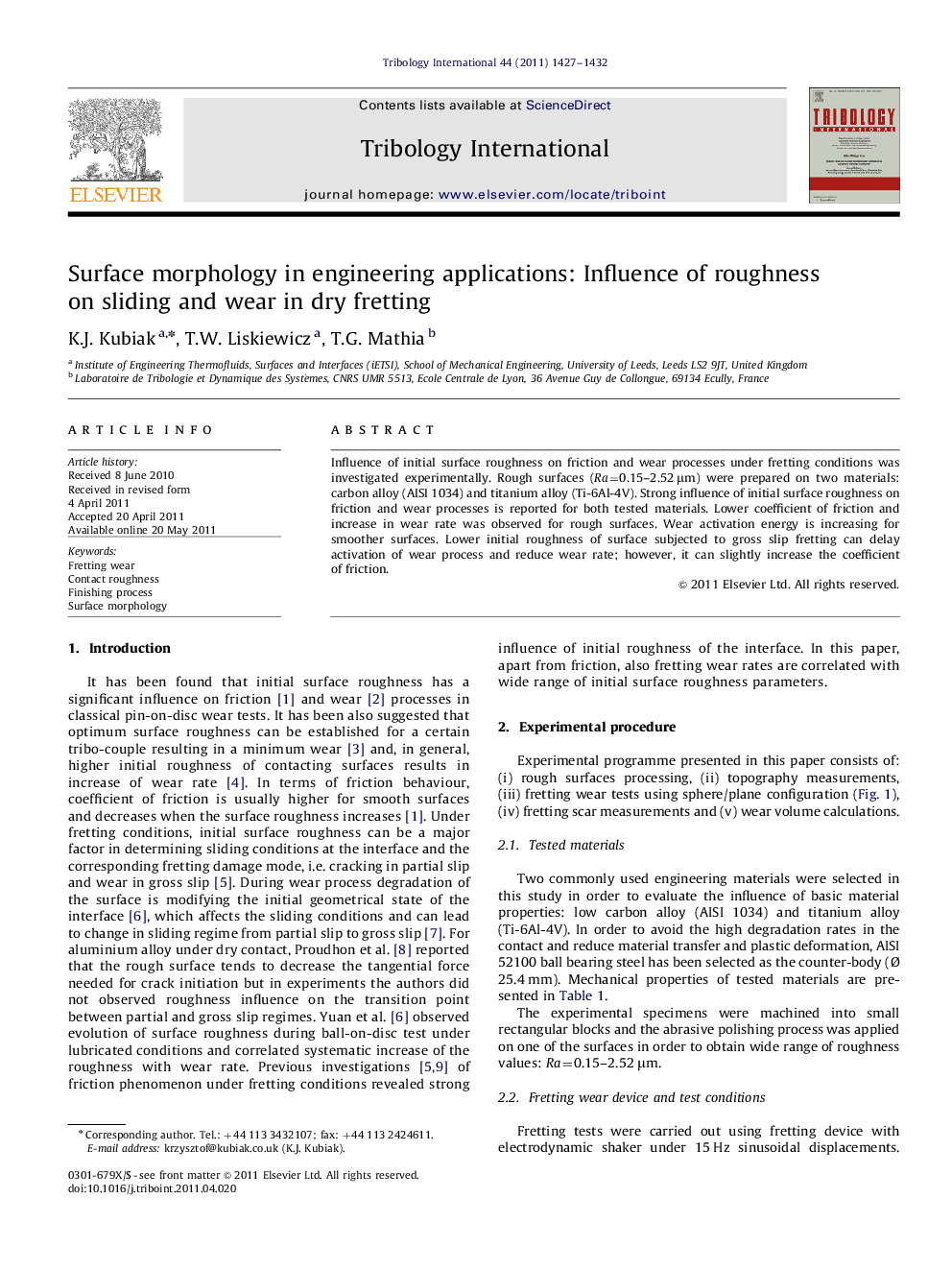| Article ID | Journal | Published Year | Pages | File Type |
|---|---|---|---|---|
| 615447 | Tribology International | 2011 | 6 Pages |
Influence of initial surface roughness on friction and wear processes under fretting conditions was investigated experimentally. Rough surfaces (Ra=0.15–2.52 μm) were prepared on two materials: carbon alloy (AISI 1034) and titanium alloy (Ti-6Al-4V). Strong influence of initial surface roughness on friction and wear processes is reported for both tested materials. Lower coefficient of friction and increase in wear rate was observed for rough surfaces. Wear activation energy is increasing for smoother surfaces. Lower initial roughness of surface subjected to gross slip fretting can delay activation of wear process and reduce wear rate; however, it can slightly increase the coefficient of friction.
Graphical AbstractFigure optionsDownload full-size imageDownload high-quality image (128 K)Download as PowerPoint slideHighlights► Initial surface roughness can influence friction and wear processes under fretting conditions. ► Rough surface reduce coefficient of friction and increase wear rate. ► Smooth surface increase coefficient of friction and delay activation of wear process. ► Lower initial roughness reduce wear rate.
